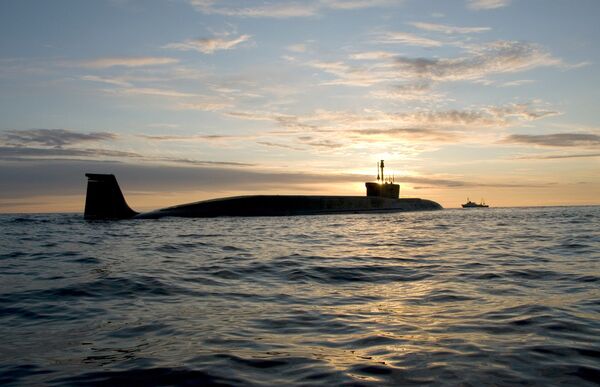Russia’s Defense Ministry and United Shipbuilding Corporation (USC) have signed a contract for the delivery of five new Borey class (Project 955) strategic nuclear submarines, USC spokesman Alexei Kravchenko said on Monday.
“I have information that the contract for five subs has been signed,” Kravchenko told RIA Novosti.
He did not specify when the contract was signed but said that the signing was confirmed on Monday.
On May 25, it was reported that the ministry and the USC failed again to agree final contract terms for Borey delivery, despite the intervention of President Vladimir Putin.
Defense Minister Anatoly Serdyukov told journalists on Friday after a meeting with Putin that his ministry and the submarine manufacturer would return to talks in the future to agree a final price for the Borey boats in 2015.
At the end of Friday’s meeting, Serdyukov and Trade and Industry Minister Denis Manturov left to sign the deal with no journalists present, and it was unclear how the final agreement looked and whether it would be signed.
Manturov told journalists earlier on Friday after the meeting with Putin that the contract would be signed Friday. He also said then that the Borey contract would be implemented in full.
“There will be five submarines and a design contract,” he said on Friday. “The president made a considered decision that makes it possible to sign a contract with the Defense Ministry until 2020.”
The Russian Navy is to receive at least 10 new Borey class strategic nuclear submarines by 2020. The submarines, to be armed with Bulava ballistic missiles, are expected to constitute the core of Russia's strategic ballistic missile submarine force after 2018.
Then-prime minister Putin said last year that the procurement of new warships and submarines for the Navy would be a priority over the next decade. The Russian government has allocated five trillion rubles ($156 bln) or a quarter of the entire armament procurement budget until 2020 for this purpose.
The signing of a contract for delivery of the Borey submarines has been repeatedly postponed due to the pricing dispute between the Defense Ministry and defense industry enterprises.

